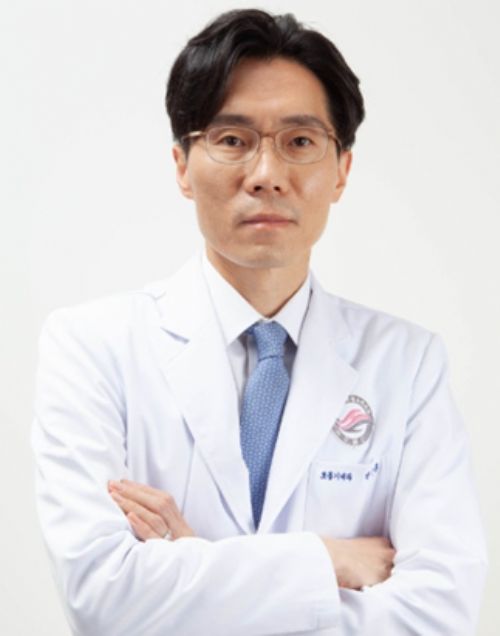Time slot's time in Taipei (GMT+8)
- 2023/10/15
- Room 301
- Type: Physical(Eng)
- Latest Research-2nd Joint Congress of KSCCM/TSCCM/TSECCM (KKT)
Latest research
- TIME
- TOPIC
- SPEAKER
- MODERATOR
- 13:30-13:50
- Korean Sepsis Alliance
- SPEAKER:
SUNGHOON PARK
Korea,South (南韓)
- MODERATOR:
柳浩杰(Ho Geol Ryu)
Korea,South (南韓)
- Prof. SUNGHOON PARK
- Pulmonary, Allergy and Critical Care Medicine
- Hallym University Sacred Heart Hospital
Biography:
[Education]
1992-1998 College of Medicine, Hallym University, Awarded M.D. Degree in Medicine
2000-2002 Graduate School, Hallym University, Awarded M. Msc Degree in
2007-2011 Graduate School, Hallym University, Awarded M. Doc Degree in Medicine
[Career]
1998-2003: Internship and Residency, Hallym University Kangdong Sacred Heart Hospital
2006-2008: Fellowship, Pulmonary and Critical Care Medicine, Samsung Medical Center
2008-Present: Professor, Pulmonary and Critical Care Medicine, ICU director, Hallym University Sacred Heart Hospital
2014 (1 year); Observational fellowship, ECMO program in NYPH/Columbia University Medical Center, New York, U.S.A.
Member of the Korean Association of Tuberculosis and Respiratory Disease (KATRD)
Director of the Standardization Committee, The Korean Society of Critical Care Medicine (KSCCM)
[Education]
1992-1998 College of Medicine, Hallym University, Awarded M.D. Degree in Medicine
2000-2002 Graduate School, Hallym University, Awarded M. Msc Degree in
2007-2011 Graduate School, Hallym University, Awarded M. Doc Degree in Medicine
[Career]
1998-2003: Internship and Residency, Hallym University Kangdong Sacred Heart Hospital
2006-2008: Fellowship, Pulmonary and Critical Care Medicine, Samsung Medical Center
2008-Present: Professor, Pulmonary and Critical Care Medicine, ICU director, Hallym University Sacred Heart Hospital
2014 (1 year); Observational fellowship, ECMO program in NYPH/Columbia University Medical Center, New York, U.S.A.
Member of the Korean Association of Tuberculosis and Respiratory Disease (KATRD)
Director of the Standardization Committee, The Korean Society of Critical Care Medicine (KSCCM)
Abstract:
Sepsis is a global health problem with high mortality rates and healthcare cost. Although data are limited, sepsis mortality is still higher in South Korea, compared to Western countries. A previous Asian multi-national study of a decade ago, the compliance rates of sepsis bundle were less than 10%; particularly, it was 5.6% in South Korea. Because of it, we realized the necessity of reliable and nationwide database system for sepsis. By doing so, the collection of reliable epidemiological and clinical data on sepsis would be possible, thus facilitating an accurate estimation of sepsis burden. With this background, the Korean Sepsis Alliance (KSA) was founded in 2017, which was composed of the Korean Society of Critical Care Medicine (KSCCM) members. In 2018, the KSA conducted a retrospective study on sepsis patients who visited emergency departments. However, thanks to the continuous efforts of the KSA leaders, we’ve got the research funds from the Korean government since 2019. The KSCCM also supported the KSA in many aspects. Afterwards, we have been able to establish the prospective sepsis registry database. To date, we have collected sepsis data from more than 19,000 patients. Based on these data, we noted that the rates of sepsis bundle compliance are still low and hospital mortality is still high. To date, using the registry database, many original articles have been published by participating investigators. Ultimately, through this project, we hope that the compliance rates of sepsis bundle will be increased, and mortality be decreased.
Sepsis is a global health problem with high mortality rates and healthcare cost. Although data are limited, sepsis mortality is still higher in South Korea, compared to Western countries. A previous Asian multi-national study of a decade ago, the compliance rates of sepsis bundle were less than 10%; particularly, it was 5.6% in South Korea. Because of it, we realized the necessity of reliable and nationwide database system for sepsis. By doing so, the collection of reliable epidemiological and clinical data on sepsis would be possible, thus facilitating an accurate estimation of sepsis burden. With this background, the Korean Sepsis Alliance (KSA) was founded in 2017, which was composed of the Korean Society of Critical Care Medicine (KSCCM) members. In 2018, the KSA conducted a retrospective study on sepsis patients who visited emergency departments. However, thanks to the continuous efforts of the KSA leaders, we’ve got the research funds from the Korean government since 2019. The KSCCM also supported the KSA in many aspects. Afterwards, we have been able to establish the prospective sepsis registry database. To date, we have collected sepsis data from more than 19,000 patients. Based on these data, we noted that the rates of sepsis bundle compliance are still low and hospital mortality is still high. To date, using the registry database, many original articles have been published by participating investigators. Ultimately, through this project, we hope that the compliance rates of sepsis bundle will be increased, and mortality be decreased.


